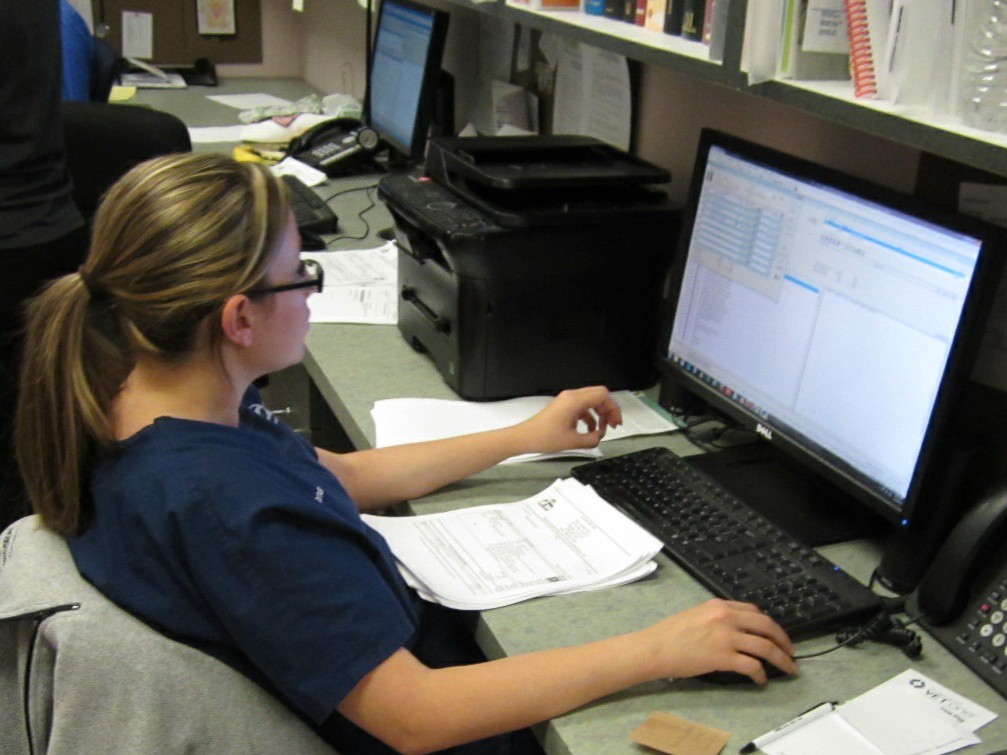
Every industry is filled with a unique share of mundane and monotonous tasks that employees must do on a daily basis. Say hello to Robotic Process Automation, a.k.a, RPA. RPA systems and bots are designed to automate these type of tasks and free up time for employees so they can focus on the more important tasks. A common misconception is that computers and bots are going to take over and people will lose their jobs. Fortunately, that is not the case. Automation is designed to take over tasks that have a proven, repetitive process. Tasks such as data entry, classifying documents, and reconciling documents are monotonous and take up a large amount of time. By automating these tasks, employees are able to focus on higher level tasks that require the intellect of the human brain.
Each business has its own unique set of problems that create a bottleneck in their processes. Here at Aptus, our main area of expertise is problem solving! Businesses come to us with problems they’ve had for a long time or problems they know exist, but don’t even know where to start when it comes to resolving them. RPA systems can help reduce or eliminate that bottleneck and streamline business processes to create a better workflow. One of the industries automation can make a huge difference is the healthcare industry. With a more efficient workflow, medical facilities can handle more patients and provide a higher standard of care.
Data Entry
When it comes to the healthcare industry, we all know what it’s like to fill out pages and pages of forms with our personal information. Now think about the employees that have to manually input that information into the computer system. We have the capability of developing systems that can do this automatically. RPA can automate the task of data entry and reconciliation. Just implementing something as simple as this can free up huge amounts of time for employees! Another benefit is a reduction in the error rate. We’re all human, and therefore we all make mistakes, especially after hours and hours of looking at a computer screen. That’s enough to make even the most calm person lose their mind!

Billing and Claims
Another example within the healthcare industry is in billing and claims. Depending on the size of the medical facility, hundreds of claims and bills are sent out on a daily basis, and that doesn’t even take into account the claims that were sent back due to compliance or format issues. It is much easier and faster for a bot to spot an error rather than a person. RPA can help with each of the processes that a claims department employee has to deal with such as inputting, evaluating, and appealing. This allows for a faster billing cycle and frees up time for administrators in the claims and billing department and leads to happier patients.
Improved Patient Care
One last example of RPA in the healthcare industry is with patient care. Large amounts of patient data is collected, yet this data does not provide much insight unless it is analyzed. Software systems can easily analyze a patient’s data and provide meaningful insights through the use of data analytics. This leads to a more focused and tailored approach in treating a patient. By implementing RPA to run analyses, doctors can spend more time with the patient discussing treatment options, and creating a more personal experience. More complex systems can incorporate AI into patient care and use it to make predictions on patient prognoses and make a preliminary assessment of whether or not surgery is required. These types of systems save time for surgeons and help prevent patients from being misdiagnosed. Aptus has developed a system for a client that views a patient’s X-ray, and uses AI to make a preliminary diagnosis on whether or not the patient needs a full hip replacement. We’ve also developed a system that renders a 3D image of a patient’s spine based on multiple MRI images.
Conclusion
RPA is a powerful tool, especially in the healthcare industry. From helping administration staff such as managers, to assisting doctors and surgeons, the uses of RPA are endless. The benefits that this automation provides saves time, money, and increases the number of patients a hospital or medical facility can take care of. Technology and automation is an ever growing field and it can take out the human aspect where it isn’t needed, such as billing and claims, and make more time where the human aspect is needed, like one on one time with a doctor. For more information on how Aptus can help your business, please contact us. We are always available to discuss what problems your business is facing, and come up with a tailored solution.
RPA is also very beneficial in other industries and I will be posting some articles about these, including the legal and insurance industries. Subscribe to be notified when we post any new articles!






